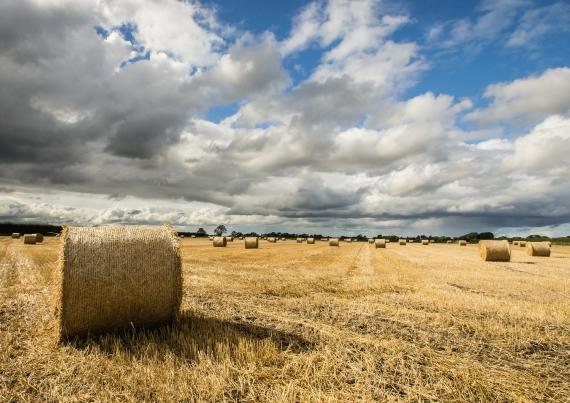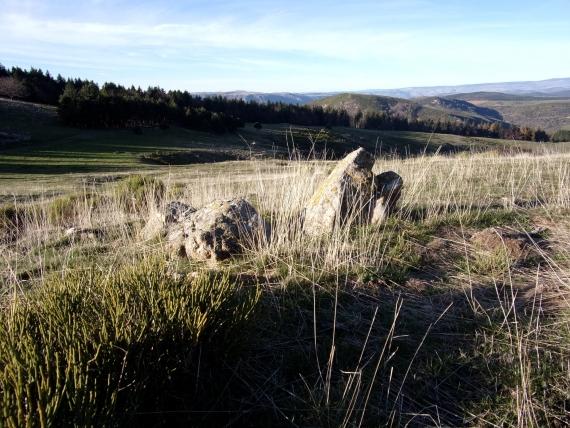How to Find Land for Homesteading
Posted: December 22, 2015 by LandCentury

Homesteading is a dream for so many families and individuals. And theres a growing movement in the U.S. that proves it. Because growing your own food is one of the cornerstones of being self-sufficient, many people set off on their homesteading journey by first finding the right piece of land.
But how do you go about finding land for homesteading? How can you find the ideal piece of property for your needs?
Consider Access Rights
One of the first and most important things you need to consider are access rights. It cannot be emphasized enough how important land access rights are. Before you commit to any purchase, you need to be sure without a shadow of a doubt that the propertys deed comes with permanent, transferable and legal access.
Weve heard horror stories of couples investing in properties with assurance from neighbors that they could use their property to access their land, only to have their neighbor go back on their word. In extreme cases, property owners are forced to abandon their land or face a costly legal battle. Dont make the same mistake. Make sure you have access rights before you put a cent down on the land.
Dont Forget About Water, Sewer and Drainage
Its easy to overlook water, sewer and drainage when youve found your dream piece of property. But youll have trouble using the land for homesteading if there arent adequate water, drainage or sewage options. Maybe you found a piece of property with a creek running across it. Youll need to do research to make sure that you have the right to use it once you purchase it. And in some cases, you may find that the propertys water supply is part of the city watershed, which is when you would be unable to use one drop of water legally.
Certain laws may prevent you from keeping livestock within a certain distance of the creek. Other restrictions may prevent you from putting an outhouse or septic tank on the property. Keep in mind that some areas have outlawed outhouses, which means you have to install a septic system or hook up to the public sewer system. Installing a septic tank will require additional tests and costs, so keep this in mind.
Consider Mineral and Timber Rights
Whats the Weather Like? Is Growing Season Long Enough?
What is the weather like in the area? Are winters harsh? Find out more about weather information before investing in a property to ensure that you will be able to handle whatever weather may come your way. Youll also need to consider the growing season. If youre hoping to maximize food production, you may want to stay clear of cold climates that have short growing seasons. You can find information on the area's growing seasons online or by talking with local farmers.
Are There Outbuildings? Can You Use Them?
Does the property come with any outbuildings? If so, can you start using them immediately? Some homesteaders insist on having outbuildings already on the property when they purchase it. This way, they have structures already there when they first purchase the property and can get started right away.
The key most important thing (if outbuildings are on the top of your list) is to ensure that any buildings, sheds or barns you may be using are structurally sound and safe. It may need work, but as long as theyre structurally sound, youll have something you can rely on until you can make the necessary repairs.
How Far Will You Be From Town?
Will you or anyone in your household be working in town? If so, you also need to factor in the time it takes to travel to the town and the cost of gas to get there. Depending on your location, you may be looking at an hour or more commute to work. Even if you have no plans to work in town, its also important to remember that if you move far away from town, your pizza runs and movie nights may quickly become a thing of the past.
Are There Zoning, Covenants or HOA Restrictions?
Another key important thing that you want to consider is zoning restrictions, covenants and HOAs. HOAs (Homeowners Association) can be particularly troublesome for homesteading families because they often have restrictions or regulations on how properties can be used.
Some HOAs do not allow chickens, clotheslines and have restrictions on the number of animals you can have. These can be serious roadblocks that prevent you from living your homesteading dreams. If at all possible, you may want to avoid purchasing a property that is attached to an HOA. Zoning restrictions and covenants may also prevent you from using the property how you want, so be aware of these before you buy the land.
Talk to Neighbors; Get to Know the Area
So many potential homesteaders overlook the importance of getting to know their neighbors and the area. While you may not realize it now, you will be relying on your neighbors from time to time, especially if youre homesteading. Not only that, but oftentimes, youll find that in smaller towns, neighbors are not so welcoming of newcomers. This can make you feel uncomfortable or unwelcome in your new home. Weve seen cases where the unwelcomed feeling was so overwhelming, new families moved within just a few months of moving in.
So, do yourself a favor and take the time to research the area. Get to know your potential neighbors and learn as much as you can about the town. If neighbors are unwelcoming, you can choose to move to a different locale before you make a serious commitment to purchase a piece of land.
Homesteading is no easy venture, but its a romantic idea. And the homesteading trend is growing in the United States. The great news is that rural land thats perfect for this lifestyle is in abundance and incredibly affordable, so you can get started with a modest amount of savings or none at all.
But how do you go about finding land for homesteading? How can you find the ideal piece of property for your needs?
Consider Access Rights
One of the first and most important things you need to consider are access rights. It cannot be emphasized enough how important land access rights are. Before you commit to any purchase, you need to be sure without a shadow of a doubt that the propertys deed comes with permanent, transferable and legal access.
Weve heard horror stories of couples investing in properties with assurance from neighbors that they could use their property to access their land, only to have their neighbor go back on their word. In extreme cases, property owners are forced to abandon their land or face a costly legal battle. Dont make the same mistake. Make sure you have access rights before you put a cent down on the land.
Dont Forget About Water, Sewer and Drainage
Its easy to overlook water, sewer and drainage when youve found your dream piece of property. But youll have trouble using the land for homesteading if there arent adequate water, drainage or sewage options. Maybe you found a piece of property with a creek running across it. Youll need to do research to make sure that you have the right to use it once you purchase it. And in some cases, you may find that the propertys water supply is part of the city watershed, which is when you would be unable to use one drop of water legally.
Certain laws may prevent you from keeping livestock within a certain distance of the creek. Other restrictions may prevent you from putting an outhouse or septic tank on the property. Keep in mind that some areas have outlawed outhouses, which means you have to install a septic system or hook up to the public sewer system. Installing a septic tank will require additional tests and costs, so keep this in mind.
Consider Mineral and Timber Rights
Whats the Weather Like? Is Growing Season Long Enough?
What is the weather like in the area? Are winters harsh? Find out more about weather information before investing in a property to ensure that you will be able to handle whatever weather may come your way. Youll also need to consider the growing season. If youre hoping to maximize food production, you may want to stay clear of cold climates that have short growing seasons. You can find information on the area's growing seasons online or by talking with local farmers.
Are There Outbuildings? Can You Use Them?
Does the property come with any outbuildings? If so, can you start using them immediately? Some homesteaders insist on having outbuildings already on the property when they purchase it. This way, they have structures already there when they first purchase the property and can get started right away.
The key most important thing (if outbuildings are on the top of your list) is to ensure that any buildings, sheds or barns you may be using are structurally sound and safe. It may need work, but as long as theyre structurally sound, youll have something you can rely on until you can make the necessary repairs.
How Far Will You Be From Town?
Will you or anyone in your household be working in town? If so, you also need to factor in the time it takes to travel to the town and the cost of gas to get there. Depending on your location, you may be looking at an hour or more commute to work. Even if you have no plans to work in town, its also important to remember that if you move far away from town, your pizza runs and movie nights may quickly become a thing of the past.
Are There Zoning, Covenants or HOA Restrictions?
Another key important thing that you want to consider is zoning restrictions, covenants and HOAs. HOAs (Homeowners Association) can be particularly troublesome for homesteading families because they often have restrictions or regulations on how properties can be used.
Some HOAs do not allow chickens, clotheslines and have restrictions on the number of animals you can have. These can be serious roadblocks that prevent you from living your homesteading dreams. If at all possible, you may want to avoid purchasing a property that is attached to an HOA. Zoning restrictions and covenants may also prevent you from using the property how you want, so be aware of these before you buy the land.
Talk to Neighbors; Get to Know the Area
So many potential homesteaders overlook the importance of getting to know their neighbors and the area. While you may not realize it now, you will be relying on your neighbors from time to time, especially if youre homesteading. Not only that, but oftentimes, youll find that in smaller towns, neighbors are not so welcoming of newcomers. This can make you feel uncomfortable or unwelcome in your new home. Weve seen cases where the unwelcomed feeling was so overwhelming, new families moved within just a few months of moving in.
So, do yourself a favor and take the time to research the area. Get to know your potential neighbors and learn as much as you can about the town. If neighbors are unwelcoming, you can choose to move to a different locale before you make a serious commitment to purchase a piece of land.
Homesteading is no easy venture, but its a romantic idea. And the homesteading trend is growing in the United States. The great news is that rural land thats perfect for this lifestyle is in abundance and incredibly affordable, so you can get started with a modest amount of savings or none at all.




